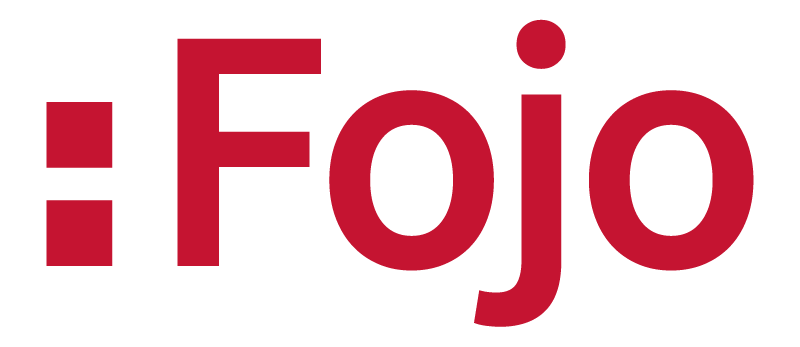Gender and diversity concepts
Topics
Gender clubs
Women are underrepresented in newsrooms across the Global South and are often assigned roles of lesser status compared to men. Additionally, sexual harassment within the media industry is a widespread issue. To help address these challenges, raising awareness among students before they enter the sector can be beneficial.
Rwanda
As part of the Rwanda Media Programme, four partner universities have established “Gender Clubs” aimed at promoting gender equality among both students and faculty. These clubs advocate for gender sensitivity within educational settings and future workplaces. Both male and female journalism students, along with lecturers, participate in the clubs, which organize workshops, discussions on gender-related issues, and publish gender-focused content in student publications etc. Moreover, these clubs function as safe spaces for their members to talk about sensitive issues.
Gender declarations
Various forms of commitments, such as declarations, charters, and pledges, play a crucial role in fostering long-term dedication to gender equality in the media sector. By establishing clear goals and accountability mechanisms, they help media organizations stay focused on creating lasting, structural change that promotes fairness, inclusivity, and equal opportunities for all.
Somalia
The Somali Gender Declaration initiative was developed with the aim to change the perception and position of women working in the Somali media industry. The rationale behind the initiative was to support the Somalia Women Journalist Organization (SWJO) in developing a change strategy for women working in the media industry, with a focus on tangible results with clear milestones and objectives. So far, 47 media houses have signed the declaration, and it has for example resulted in introduction of maternity leave, zero tolerance to sexual harassment and the creation of new professional opportunities for women journalists and more.
Bangladesh
Building on its previous gender-related initiatives, Fojo’s local partner MRDI is raising its ambitions to the structural level to further promote gender equality within the media sector. A charter for gender transformation of the media industry is currently under development (2024), aiming to establish a shared framework among key stakeholders. A working group has been established, consisting of representatives from the industry, academia and civil society. In addition focus groups will be conducted nationwide to gather insights for the process. Eventually, the charter will guide newsrooms in creating gender policies that address both content production and workplace dynamics.
Sub-Saharan Africa
The Kigali Declaration on the Elimination of gender Violence in and through the Media in Africa is a landmark document. It sets a frame for the commitment to create gender just working conditions in the newsrooms and to improve how gender-based violence is reported in the news. It spells out minimum measures to take for different groups of stakeholders. The declaration is a collaborative effort, led by African Women in Media (and supported by Fojo), involving experts, academia, and civil society from across the region. The guiding principles were adopted in November 2023, and final version can be found here.
Investigative reporting for female journalists
Background
Investigative journalism has traditionally been regarded as a method for hard beats, and with few women taking up the practice. This is gradually changing, but the process is slow, and women are still severely underrepresented in this genre in many countries in the Global South. The gender imbalance in turn affects what topics are being investigated.
Bangladesh
Women journalists have been trained in investigative journalism under the Fojo-MRDI programme. Thanks to this training and tailored mentorships/coaching, the number of women journalists who are engaged in IJ have grown substantially. This is also a result of a constant gender perspective being applied in all partnerships with local media houses under the IJ-programme.
Global: ”Dig Better”
Investigative journalism is often absent in academic curricula globally, resulting in a lack of newly qualified journalists in this form of reporting. It’s also a field traditionally dominated by men. The Dig Better pilot is a capacity building and empowerment programme for women journalism students, focused on building practical and theoretical skills. It is a dual-track programme: learning the basics of investigative journalism, while producing an investigative journalism piece. It will be developed and implemented in collaboration with journalism schools in six countries across the world between 2025 and 2029.
Psychosocial support – stress and trauma management
Both male and female journalists face significant stress and traumatic experiences in their work. However, certain stressors, such as sexual harassment and gender-related bullying, disproportionately affect women media professionals compared to their male counterparts. Historically, these safety concerns have been overlooked and often excluded from safety training and protocols. To address this gap, targeted support measures must be implemented.
Bangladesh
Under the Fojo-MRDI program, an initiative has been launched to create a safe space for women journalists to share their experiences, connect with peers, and receive professional advice. The program is building the capacity of a group of women journalists as para-counsellors, who will serve as the initial mental health support system within newsrooms. These individuals will provide professional assistance to women journalists dealing with emotional stress, trauma, anxiety, depression, and post-traumatic stress disorder (PTSD).
Rwanda
The Gender Help Desk in Rwanda is a vital institution offering psychological support to media professionals who have experienced harassment. Established in 2020 by WMOC (Women Media Owners for Change), it provides psychological assistance and counselling related to sexual harassment cases. The Gender Help Desk also operates a hotline and has offered counselling services to female journalists who have faced sexual harassment and abuse in the workplace.
Financial incentives (The Gender Catalyst Fund)
Myanmar (pilot 2024)
Under the Gender Catalyst Fund media outlets are invited to propose initiatives that support gender in one of three specific areas: Staff, Content, and Audience. Each initiative should focus on tangible results and be limited to a nine-month timeframe. The applicants are to involve the women working at the media outlet (newsroom, HR, business, admin) in the activity, as they can contribute with their own experience and expertise. There Gender Catalyst Fund will reward cash grants for the media outlets.
Women Leadership
Myanmar: Media Women Leaders of the Future
Building on the success of the Women in News (WIN) programme over the past two years, where 12 mid and senior level newsroom staff underwent extensive leadership training, Fojo will continue building on them as a key gender resource in the Myanmar media community.
A peer support system was developed and implemented in 2024, where twelve alumni from the WIN program built their capacity to become trainers and mentors in their respective media communities, where media professionals work under extreme pressure: bombings, military raids, checkpoints leading to arrest and imprisonment. This activity aims to include a total of 150 women media workers.
Global
The Women Media Leaders of Tomorrow gives 200 young female journalists a unique opportunity to learn how to lead a newsroom. This is a highly valued skillset missing in most journalism curricula, and often unavailable to women once they enter the profession. Participants comprise of recently graduated working journalists to create the best conditions for professional progression. Their employers sign an MoU ensuring that the participants can take time off their ordinary work to participate in the programme and be considered for future more senior job openings. This activity falls under the EU-funded AGILE-programme.
Women expert directories
The goal of expert directories (or databases) is to address the underrepresentation of women in news media by promoting women experts as sources. These directories support local journalism communities by compiling and presenting female expert sources in an easily accessible format.
Zimbabwe
Gender Media Connect (GMC) was an early adopter, developing its first printed gender directory in the early 2000s (to be confirmed), with support from Fojo. Alongside this initiative, GMC also provided media training for women experts.
Ethiopia
In 2023, Fojo’s local partner, EMWA, launched the first Women Expert Directory in Ethiopia, a groundbreaking resource in the country.
Sub-Saharan Africa
The regional African database, SourceHer, is developed and hosted by AWiM, with support from Fojo and the CHARM initiative.
New Colleague
Fojo’s Ny Kollega project is designed for journalists who have studied or worked outside of Sweden and wish to pursue a career in Swedish media. This program provides participants with knowledge about Swedish journalism and offers practical experience through internships at prominent media organisations such as SVT, Bonnier News, and Schibsted. The program, including the internship, spans ten months and aims to enhance diversity within the Swedish media landscape. Participants also receive mentorship and networking opportunities to support their integration into the Swedish media industry.
Study series on gender/diversity
Barriers research project
In collaboration with African Women in Media (AWiM), Fojo has conducted several comprehensive studies on the status of women media professionals in the African media landscape. The first study, covering 17 countries in Sub-Saharan Africa, highlighted numerous gender-related challenges that women journalists face throughout their careers. Following this, a country-specific study on Rwanda revealed serious issues with sexual harassment within the media industry. The third study in this series focuses on Ethiopia and is expected to be published in early 2025.
Gender and Media regulation study project
Fojo, in collaboration with the Department of Journalism, Media and Communication (JMG) at the University of Gothenburg, has conducted a global study on gender equality and media regulation. This project maps laws and policies (both regulatory and self-regulatory) to identify measures that promote gender equality in the media and support women’s freedom of expression. The study covers policy instruments from international to media house levels across over 100 countries. Additionally, case studies have been developed in countries where Fojo is active, including Armenia, Bangladesh, Rwanda, Somalia, Sweden, and Zimbabwe.
Global Media Monitoring Project
Fojo is the lead organisation in Sweden for the Global Media Monitoring Project (GMMP), the largest and longest-running research initiative on gender representation in the world’s news media. The monitoring occurs every five years over a single day and covers print, radio, TV, and online media. Fojo also supports partner organizations in other countries to participate in the GMMP. The next round of monitoring is scheduled for 2025.


